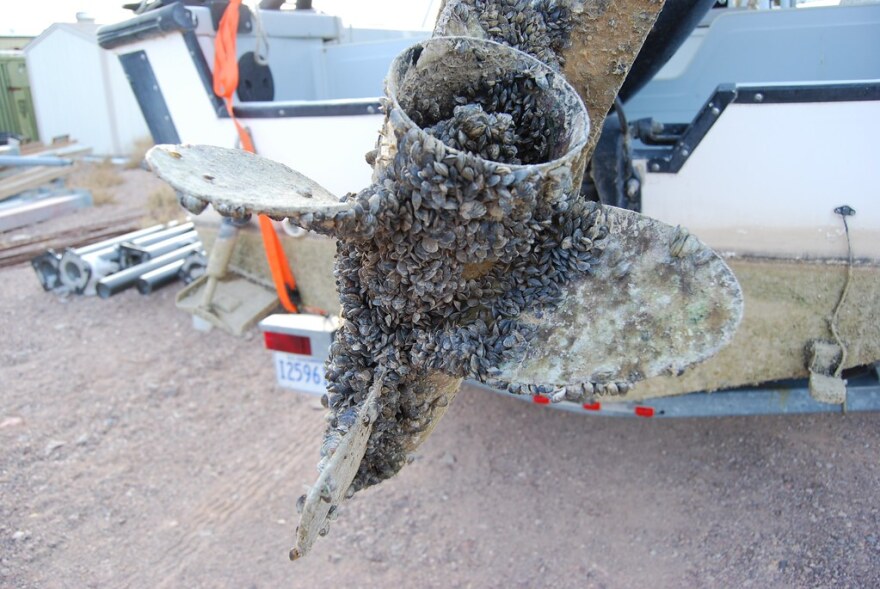As summer approaches, Utah residents are getting ready to take out their boats. If you take a trip out to one of Utah’s reservoirs or lakes, many owners are required to make sure there aren’t any shelled critters hitching a ride.
The Utah Division of Wildlife Resources is serious about stopping the spread of Quagga and Zebra mussels, which are invasive aquatic species that wreak havoc in lakes and rivers. Utah officials are asking boat owners to be extra vigilant when tending to their vessels.
“We should always keep our boats clean, drained and dry," said Scott Dalebout, the statewide operations lieutenant for the Utah Division of Wildlife Resources. "People have heard that message forever, but it’s absolutely the bare minimum we can do. Mussels need water to survive and any standing water, any wet areas of the boat will help the mussels survive longer. That’s the worst nightmare - to have a live mussel get off in another water body and start reproducing.”
He is the coordinator of Utah’s Aquatic Invasive Species Interdiction Efforts and said their priority right now is the mussels in Lake Powell. He said boat owners should be prepared to stop at a watercraft inspection station before entering and leaving any water body in the southwest.
“They need to plan ahead because it’s going to take a while to be able to get their boat out, get it inspected and decontaminated if necessary, and then get them on the road,” he said.
Quagga and Zebra mussels are native to Eastern Europe. They first appeared in the Great Lakes region in the 1980s and have since spread to several major reservoirs in the southwest, including Lake Mead and Lake Powell.
“They clog up our water systems, so for folks that irrigate with pressurized irrigation or any other kind of irrigation, it clogs up these pipes and it costs millions of dollars a year to clean out the infrastructure," Dalebout said. "It affects everybody, from not just boater’s fisherman to water users--and that’s all of us."


